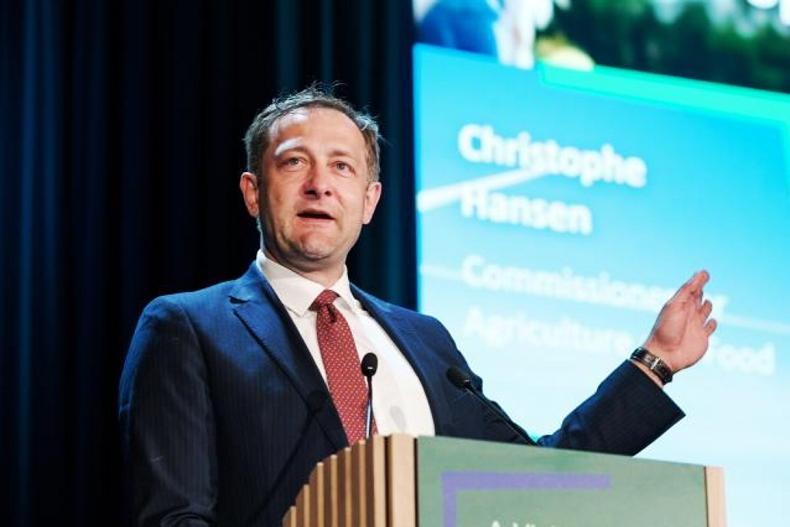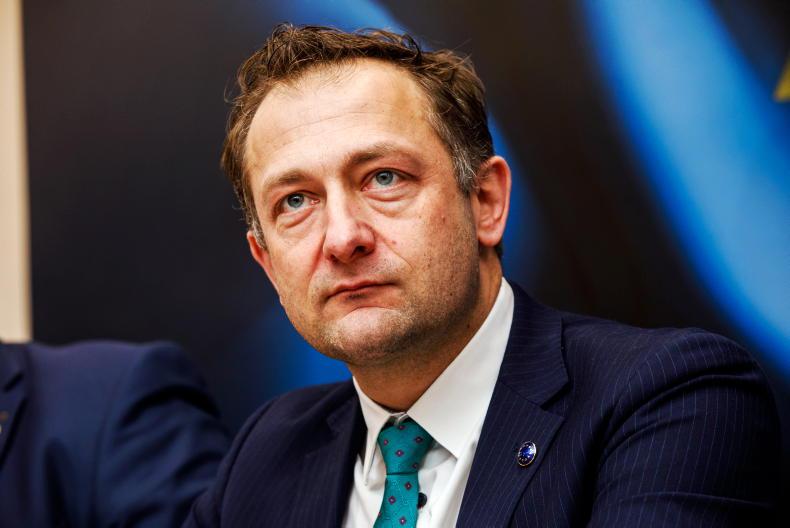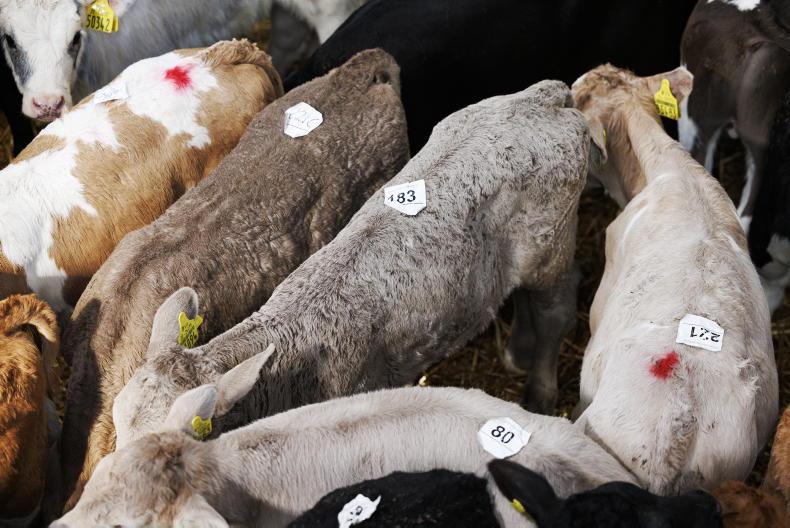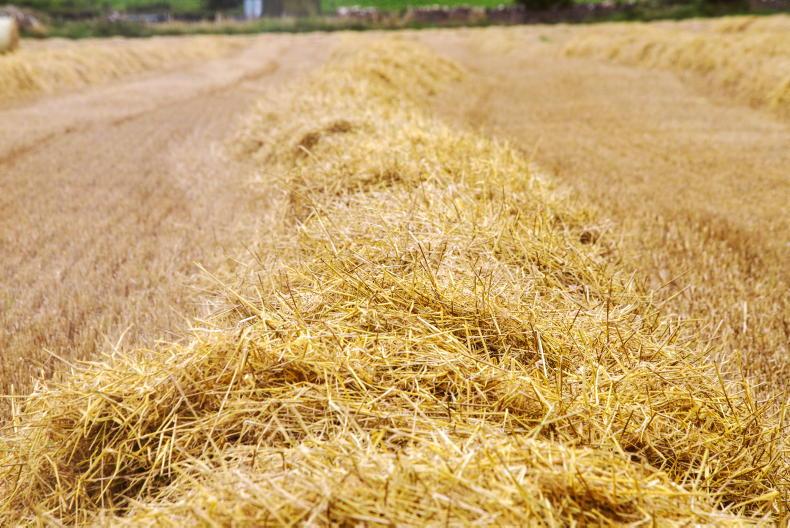Few could disagree with a single word in the annual state of the union address delivered by European Commission president Ursula von der Leyen to MEPs this week.
She spoke at length about the Russian invasion of Ukraine and what it has meant for the EU.
As expected, the wider political and human consequences of war in Europe were addressed at length, as was the cost to EU consumers and the implications for energy supply and cost.
In this, she identified the EU ambition to raise €140bn from fossil fuel energy companies as their profits increase, which would be made available to member states to ease consumer energy costs.
All of these sentiments will be well endorsed by all citizens, but it is what she didn’t mention that will strike a chord with Irish and EU farmers.
In the course of her one-hour address, she never mentioned farming, farmers or food. This was particularly surprising given the focus on energy and how energy, particularly through gas, is inextricably linked with fertiliser production, which is in turn a core ingredient of food production.
Oversight or indifference?
Given the weight of attention on energy, it is surprising that food and farming, even in the context of Farm to Fork and climate, didn’t get an outing.
Perhaps the agenda was full and nobody could deny that war in Ukraine, energy and supply and costs, as we head into winter, are priorities.
However, when we look beyond the immediate issues, the reality is that maintaining EU food production should feature, even if this isn’t necessarily through a farmer’s lens.
This is a concern at two levels. Firstly, there is the issue of EU food supply being assumed and, secondly, there is the issue of how farmer issues are struggling for traction in the Brussels corridors of power.
During the term of this Commission, we have noted how Commissioner for Health Stella Kyriakides and vice-president Timmermans have dominated EU farm policy development, with Commissioner for Agriculture Janusz Wojciechowski peripheral.
Lobby voice not being heard
For farmers, the direction of travel for EU policy suggests that the farm voice is not being heard above the noise created by war in Ukraine and the multitude of other issues facing the EU.
As is the case in Ireland, there appears an ongoing hostility to agriculture, particularly when it is livestock based.
Too often, livestock production is perceived as a problem rather than a means to convert grass into protein that can be consumed by humans in a world where global demand will be higher for all animal-based protein a decade from now that it is today.
It is no longer Government and officials alone that have to be convinced in the value of farmers
Perhaps part of the issue is that farmers have been repositioned from being the good guys producing food when it was scarce to being the bad guys that are damaging the environment and creating emissions when it is plentiful.
The farm lobby needs to reset to reflect this because it is no longer sufficient to just work the corridors of power in Brussels and Strasbourg, but, in effect, the future lobby must focus on every single citizen.
It is no longer Government and officials alone that have to be convinced in the value of farmers, it has to be society in its entirety.
Only when this is accomplished can farming effectively become part of the wider policy space because the lobbying will come from all of society, not just farm organisations.
Delicate balance of food supply
Of course, the other way that the value of farmers to society could be restored is if food supply was to become an issue again.
There was brief concern at the start of the pandemic about food supply chains, but the fact that they remained intact perhaps in itself created a false sense of security about food supply.
A scarcity of fertiliser and prohibitive energy costs has the potential to seriously reduce output and while the EU is more than self-sufficient in normal times, past performance is no guarantee of future performance, as investment advertising always points out.
If global food supply comes under pressure, it is the poorest countries that suffer first and most.
Already, many areas of Africa are in a dire position because of disruption to grain supplies caused by the Russian invasion of Ukraine.
Of course, Irish beef and dairy don’t solve the grain problem, but the fact that we have the grass and water resources to produce beef and dairy means that we can still contribute to global food supply.
Agriculture has a good story to tell, but it hasn’t been told well enough for its importance to be understood by all of society right the way through to the president of the European Commission.
Read more
Trade-offs in EU food production
Ireland opts out of EU biomethane funding
Few could disagree with a single word in the annual state of the union address delivered by European Commission president Ursula von der Leyen to MEPs this week.
She spoke at length about the Russian invasion of Ukraine and what it has meant for the EU.
As expected, the wider political and human consequences of war in Europe were addressed at length, as was the cost to EU consumers and the implications for energy supply and cost.
In this, she identified the EU ambition to raise €140bn from fossil fuel energy companies as their profits increase, which would be made available to member states to ease consumer energy costs.
All of these sentiments will be well endorsed by all citizens, but it is what she didn’t mention that will strike a chord with Irish and EU farmers.
In the course of her one-hour address, she never mentioned farming, farmers or food. This was particularly surprising given the focus on energy and how energy, particularly through gas, is inextricably linked with fertiliser production, which is in turn a core ingredient of food production.
Oversight or indifference?
Given the weight of attention on energy, it is surprising that food and farming, even in the context of Farm to Fork and climate, didn’t get an outing.
Perhaps the agenda was full and nobody could deny that war in Ukraine, energy and supply and costs, as we head into winter, are priorities.
However, when we look beyond the immediate issues, the reality is that maintaining EU food production should feature, even if this isn’t necessarily through a farmer’s lens.
This is a concern at two levels. Firstly, there is the issue of EU food supply being assumed and, secondly, there is the issue of how farmer issues are struggling for traction in the Brussels corridors of power.
During the term of this Commission, we have noted how Commissioner for Health Stella Kyriakides and vice-president Timmermans have dominated EU farm policy development, with Commissioner for Agriculture Janusz Wojciechowski peripheral.
Lobby voice not being heard
For farmers, the direction of travel for EU policy suggests that the farm voice is not being heard above the noise created by war in Ukraine and the multitude of other issues facing the EU.
As is the case in Ireland, there appears an ongoing hostility to agriculture, particularly when it is livestock based.
Too often, livestock production is perceived as a problem rather than a means to convert grass into protein that can be consumed by humans in a world where global demand will be higher for all animal-based protein a decade from now that it is today.
It is no longer Government and officials alone that have to be convinced in the value of farmers
Perhaps part of the issue is that farmers have been repositioned from being the good guys producing food when it was scarce to being the bad guys that are damaging the environment and creating emissions when it is plentiful.
The farm lobby needs to reset to reflect this because it is no longer sufficient to just work the corridors of power in Brussels and Strasbourg, but, in effect, the future lobby must focus on every single citizen.
It is no longer Government and officials alone that have to be convinced in the value of farmers, it has to be society in its entirety.
Only when this is accomplished can farming effectively become part of the wider policy space because the lobbying will come from all of society, not just farm organisations.
Delicate balance of food supply
Of course, the other way that the value of farmers to society could be restored is if food supply was to become an issue again.
There was brief concern at the start of the pandemic about food supply chains, but the fact that they remained intact perhaps in itself created a false sense of security about food supply.
A scarcity of fertiliser and prohibitive energy costs has the potential to seriously reduce output and while the EU is more than self-sufficient in normal times, past performance is no guarantee of future performance, as investment advertising always points out.
If global food supply comes under pressure, it is the poorest countries that suffer first and most.
Already, many areas of Africa are in a dire position because of disruption to grain supplies caused by the Russian invasion of Ukraine.
Of course, Irish beef and dairy don’t solve the grain problem, but the fact that we have the grass and water resources to produce beef and dairy means that we can still contribute to global food supply.
Agriculture has a good story to tell, but it hasn’t been told well enough for its importance to be understood by all of society right the way through to the president of the European Commission.
Read more
Trade-offs in EU food production
Ireland opts out of EU biomethane funding










SHARING OPTIONS